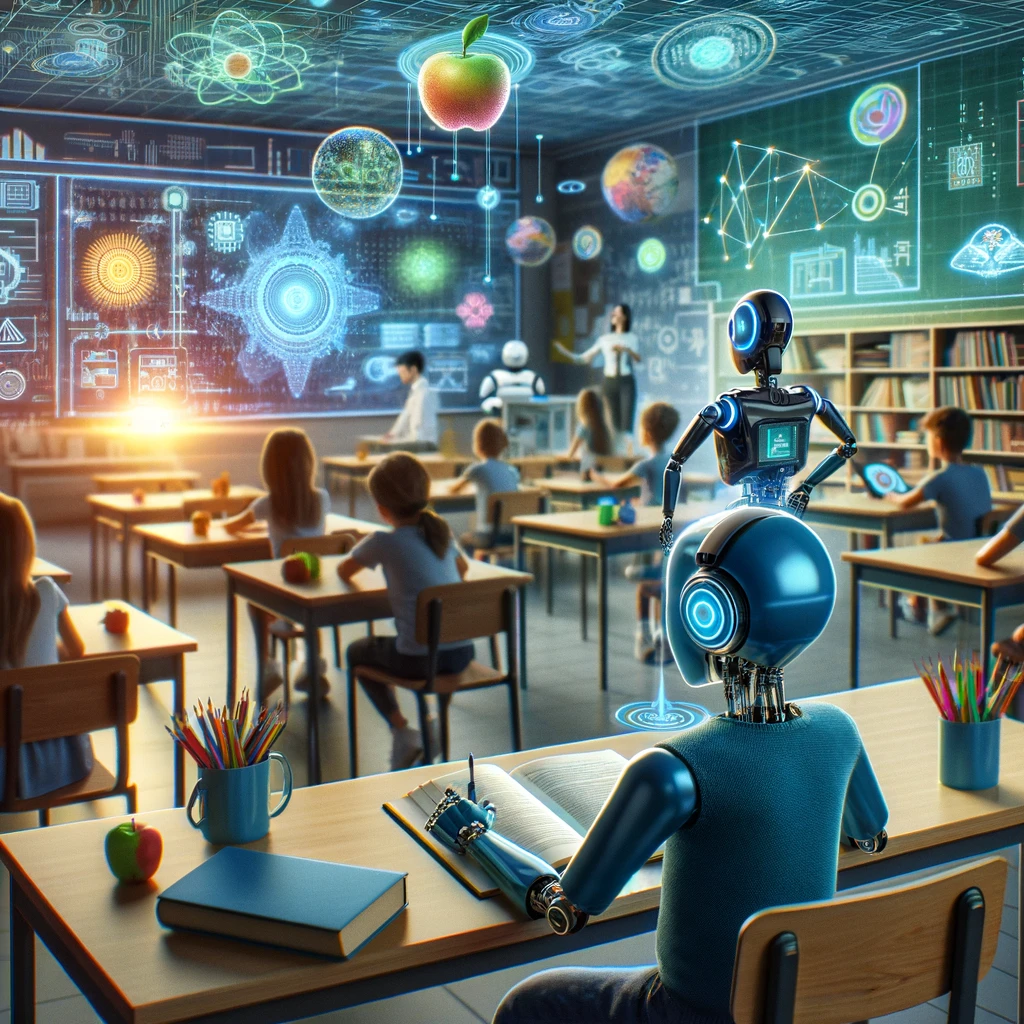Resumo
Objetivo:
O artigo busca explorar a integração de ferramentas de Inteligência Artificial (IA) no setor educacional. Ele destaca a necessidade urgente de estabelecer regulamentações e verificações adequadas para garantir o uso ético e eficaz dessas ferramentas.
Método:
- As percepções são baseadas em um artigo de opinião escrito por Stefania Giannini, Diretora-Assistente da UNESCO para a Educação.
- Os dados foram coletados por meio de uma pesquisa global envolvendo mais de 450 instituições educacionais, incluindo escolas e universidades.
Resultados:
- Apenas 10% das instituições pesquisadas formularam políticas ou diretrizes sobre o uso da IA generativa.
- Verificou-se que o escrutínio para validar livros didáticos é mais rigoroso do que a introdução de ferramentas de IA generativa em ambientes educacionais.
- Os critérios para avaliação de livros didáticos abrangem precisão de conteúdo, relevância para o ensino, adequação à idade, adequação cultural e social e proteção contra viéses.
Conclusões:
- O artigo sugere que as instituições educacionais não devem depender exclusivamente de entidades corporativas de IA para estabelecer regulamentações.
- Embora a educação continue sendo um empreendimento profundamente humano, o aumento das ferramentas digitais durante a crise da COVID-19 destacou os desafios acadêmicos e sociais que os alunos enfrentam na ausência de interação humana.
- Existe o risco de que a IA generativa possa diminuir a importância dos educadores e abrir caminho para maior automação no domínio educacional.
- Abordar os desafios prevalecentes na educação exige investimentos tanto em escolas quanto em educadores, e não apenas em tecnologia.
Implicações Práticas:
- É imperativo que os ministérios da educação colaborem com outros órgãos reguladores, especialmente aqueles que supervisionam avanços tecnológicos, para avaliar e aprovar ferramentas de IA.
- A UNESCO está na vanguarda dos diálogos globais com as partes interessadas e está no processo de elaboração de diretrizes políticas sobre o uso da IA generativa na educação.
- A "Recomendação sobre a Ética da Inteligência Artificial" da UNESCO, lançada em novembro de 2021, destaca os princípios de segurança, inclusão, diversidade, transparência e excelência.
Referências
Goyal, I. (2023). AI Renaissance, artificial intelligence, information overload, human-computer interaction, decision-making. Review of Artificial Intelligence in Education, 4(00), e012. https://doi.org/10.37497/rev.artif.intell.educ.v4i00.12
Gowda, K. R. (2023). Artificial Intelligence in the Modern Economy: Transformations, Applications, and Future Prospects. Review of Artificial Intelligence in Education, 4(00), e08. https://doi.org/10.37497/rev.artif.intell.educ.v4i00.8
Kaur, G., Gujrati, R., & Uygun, H. (2023). How does AI fit into the Management of Human Resources?. Review of Artificial Intelligence in Education, 4(00), e04. https://doi.org/10.37497/rev.artif.intell.education.v4i00.4
Lampou, R. (2023). The Integration of Artificial Intelligence in Education: Opportunities and Challenges. Review of Artificial Intelligence in Education, 4(00), e015. https://doi.org/10.37497/rev.artif.intell.educ.v4i00.15
Iyer, V. (2023). Revolutionizing Recruitment: The Synergy of Artificial Intelligence and Human Resources. Review of Artificial Intelligence in Education, 4(00), e013. https://doi.org/10.37497/rev.artif.intell.educ.v4i00.13
Patel, H. M. (2023). The Transformative Role of Artificial Intelligence in Modern Agriculture. Review of Artificial Intelligence in Education, 4(00), e014. https://doi.org/10.37497/rev.artif.intell.educ.v4i00.14
Silva, A. de O., & Janes, D. dos S. (2023). Challenges And Opportunities of Artificial Intelligence in Education in A Global Context. Review of Artificial Intelligence in Education, 4(00), e01. https://doi.org/10.37497/rev.artif.intell.education.v4i00.1
Silva, R., Noronha, M., & Ferraro, D. M. J. (2023). Determinants of Edtech Success: An Empirical Analysis of Dynamic Capabilities and Key Facilitators. Review of Artificial Intelligence in Education, 4(00), e016. https://doi.org/10.37497/rev.artif.intell.educ.v4i00.16
Silva, A. de O., & Janes, D. dos S. (2020). Exploring the Role of Artificial Intelligence in Education: A Comprehensive Perspective. Review of Artificial Intelligence in Education, 1(00), e05. https://doi.org/10.37497/rev.artif.intell.education.v1i00.5
Silva, A. de O., & Janes, D. dos S. (2021). The Emergence of ChatGPT and its Implications for Education and Academic Research in the 21st Century. Review of Artificial Intelligence in Education, 2(00), e06. https://doi.org/10.37497/rev.artif.intell.education.v2i00.6
Tambuskar, S. (2022). Challenges and Benefits of 7 ways Artificial Intelligence in Education Sector. Review of Artificial Intelligence in Education, 3(00), e03. https://doi.org/10.37497/rev.artif.intell.education.v3i00.3
Zhang, C. (2022). Current Status and Outlook of Higher Education Digital Transformation in China. Review of Artificial Intelligence in Education, 3(00), e02. https://doi.org/10.37497/rev.artif.intell.education.v3i00.2

Este trabalho está licenciado sob uma licença Creative Commons Attribution 4.0 International License.






